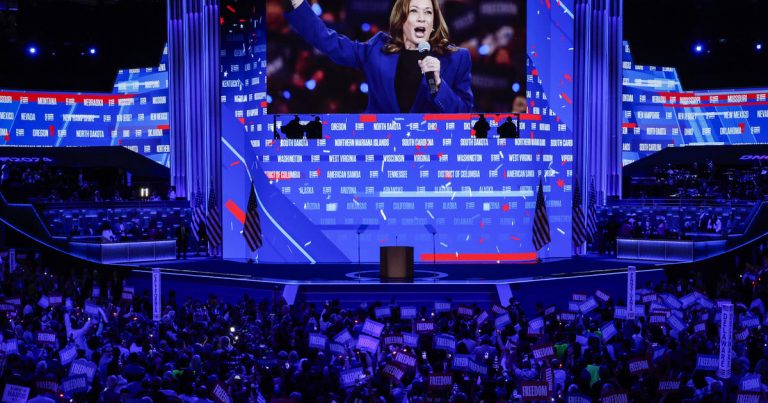What Trump and Harris have said about China based on their records
**Kamala Harris and Donald Trump’s China Policies: A Closer Look**
The race for the highest office in the United States is heating up, with Vice President Kamala Harris and former President Donald Trump trading blows over their China policies. As the world watches closely, the two candidates have made bold claims and accusations against each other regarding their stance on the rising global power and economic rival, China.
**Accusations and Allegations**
The battleground is set, with the Trump campaign suggesting that Harris’ running mate, Minnesota Gov. Tim Walz, could have ties to China. Despite the lack of evidence, the campaign insinuates a deep-rooted connection between Walz and the Asian powerhouse. However, Walz has a history of criticizing the Chinese government’s human rights record, dating back to his time teaching English at a Chinese high school in 1989.
Trump’s vice presidential pick, Sen. JD Vance of Ohio, went as far as to claim that Harris was not only looking to outsource American factories and jobs to China but had also outsourced the selection of her running mate to the country. These bold accusations highlight the intensity of the rhetoric surrounding China in this election cycle.
**Policy Differences**
During the presidential debate, Harris accused Trump of “selling out” America to China by transferring American technology, notably chips, to help bolster the Asian giant’s military capabilities. She pointed out Trump’s praise for Chinese President Xi Jinping and his administration’s implementation of export controls to restrict the flow of advanced technology to China.
While Harris has stressed the need to maintain open lines of communication with China to navigate the competitive relationship responsibly, Trump has taken a tougher stance. Trump has criticized China for its economic policies, accusing the country of exploiting the U.S. through trade imbalances. His administration has launched initiatives to crack down on Chinese economic espionage and vowed to intensify efforts to curb Chinese spying activities on American soil.
**Navigating U.S.-China Relations**
In her remarks, Harris emphasized that the U.S. is vying for dominance in the 21st century, rather than ceding ground to China. She stressed the importance of de-risking the economic relationship with China while protecting American interests and maintaining leadership in setting global standards. In contrast, Trump has expressed admiration for China and its leader but has advocated for tougher trade measures and restrictions on Chinese imports.
On the crucial issue of Taiwan, Harris and Trump have differing perspectives. Harris has reiterated U.S. support for Taiwan’s self-defense and condemned China’s aggressive actions in the South China Sea. In contrast, Trump has suggested that Taiwan should pay for U.S. protection and criticized the island for allegedly undermining American industries.
**Standing Up for Human Rights**
Both Harris and Trump have taken steps to address human rights abuses in China. Harris co-sponsored legislation to support pro-democracy movements in Hong Kong and impose sanctions on individuals responsible for human rights violations against Uyghur Muslims in Xinjiang. Trump signed these bills into law, underscoring bipartisan support for human rights protections in the face of Chinese aggression.
**Conclusion**
As the U.S.-China rivalry intensifies, the contrasting approaches of Kamala Harris and Donald Trump offer voters a clear choice in the upcoming election. While Harris advocates for a nuanced approach to economic engagement with China and highlights the importance of protecting American interests, Trump favors a more confrontational strategy aimed at curbing Chinese influence and technology theft.
Time will tell which candidate’s China policy resonates with the American electorate, but one thing is certain: the outcome of this election will have far-reaching implications for U.S.-China relations and the global balance of power.








